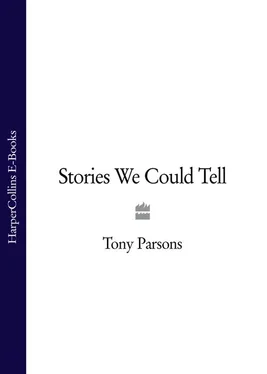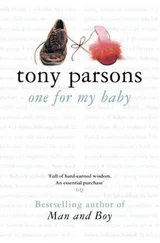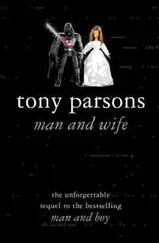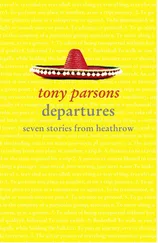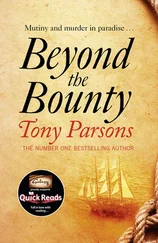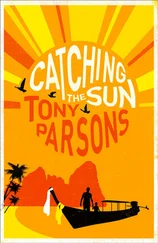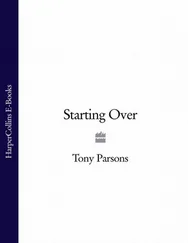‘Man, what’s the biggest selling album of the year?’ Skip said.
‘Don’t know,’ Ray said. ‘I guess it’s still Hotel California.’
‘Wild,’ Skip smiled, carefully standing his newly lit cigarette on its filter tip. ‘Laurel Canyon cowboys – cod country that the Byrds did first and harmonies that the Beach Boys did better.’ He chuckled, and Ray laughed along with Skip, even though he had always been quite fond of the Eagles, and it felt like a bit of a betrayal. ‘Well, sorry, boys – Television are going to kick your LA arses all the way back to the dude ranch.’
Ray’s eyes shone with admiration. He thought that Skip Jones looked like a buccaneer. A buccaneer who had been shipwrecked with Keith Richards and a big bag of drugs.
Skip was freakishly tall, alarmingly thin, deathbed white, and if you had seen him loping by, a stack of albums stickered with the words Promotional Copy Only: Not For Sale under his arm and about to be sold, you might have thought he was a homeless person, or a genius who could not live as mere mortals did. You would have been right on both counts.
On the rare nights when he actually went to bed, Skip Jones slept on a succession of sofas and floors across north and west London. Skip often lacked a home, but never a roof. Too many people worshipped him.
By day, Skip lurked in whatever spare corner of The Paper was free – he had no office of his own, and didn’t want one – that’s how totally rock and roll Skip was. He seemed to embody the very essence of the music. And on crumpled notepads, scraps of paper, the backs of press releases and the inside of empty cigarette packets, Skip wrote – by tormented hand, in laborious, cack-handed pencil – the most glittering words about music that anyone had ever read.
Skip was wearing the only clothes he seemed to own – torn black leather trousers, a red leather biker’s jacket and the kind of ruffled blouson that might be suitable if you found yourself fighting a duel with rapiers at dawn. He wore these elegant rags every day, in every kind of weather. Ray thought Skip looked like some kind of rock-and-roll cavalier, when everyone else was a roundhead.
Skip’s trousers were ripped at the crutch and sometimes at editorial meetings his meat and two veg were given an unexpected airing. Hardened rock chicks who thought nothing of giving head to a member of Dr Feelgood backstage at the Rainbow blushed to the roots of their dyed hair, but Skip was oblivious.
When he walked through the streets of London, rough boys with feather cuts and diamond-motif tank tops and flared jeans flapping above their steel-capped boots lobbed rocks at him. The wide world scorned him as a freak. But at the paper, Skip was revered. It wasn’t just Ray. Leon loved Skip. Terry loved Skip. He was the reason they all wanted to work for The Paper .
Skip Jones had started writing for The Paper when he was a bleary-eyed dropout from Balliol and the youngest writer on Oz, and his waspish reflections on the music’s glorious dead – Jimi Hendrix, Brian Jones, Jim Morrison, Nick Drake – and walking wounded – Lou Reed, Brian Wilson, Syd Barrett, Iggy Pop, Dag Wood – did more than anything or anyone to help Kevin White drag The Paper from underground rag to mainstream music magazine.
‘You like the new bands?’ Skip said. ‘Not your thing, right?’
Ray smiled politely. He didn’t really have to explain anything to Skip. Skip understood.
‘I like them,’ Skip said. ‘Some of them. But what they’re doing, what they’re devoting their careers to, Eddie Cochran did in less than two minutes. Check it out, man. “Summertime Blues” – one minute fifty-nine. They want back to basics? Eddie Cochran did it first. And you can’t slag off the old guard when you’re stealing their riffs. I mean, where did the Clash lift the riff for “1977”?’
‘The Kinks,’ Ray said. ‘“You Really Got Me”.’
Skip smiled slyly. ‘So what are you into these days? Not Led Zeppelin?’
‘My brother liked all that. I liked – I don’t know – the folky stuff they did. You know, “Tangerine,” “White Summer/Black Mountain Side”’.
Ray didn’t say that his brother had died and the records were gathering dust in a bedroom that his parents had locked. He didn’t tell Skip Jones that. They didn’t talk about their lives. Every conversation they had was about music. Ray supposed that Skip must have a family somewhere. But he never mentioned them. Over the din of the music, what they talked about was music.
‘Big Joni Mitchell fans, Page and Plant,’ Skip said. ‘Everyone ignores that. But if you like that acoustic side of Led Zeppelin, you got to check out some of those folk boys. Davy Graham. Bert Jansch and John Renbourn, the Pentangle boys. Leo Kottke. John Fahey – a mad genius, the acoustic Hendrix. And John Martyn. You know John Martyn? He’s our Dylan. Don’t be put off because the guy’s got a beard, man.’
‘Beards don’t bother me,’ Ray said, struggling to commit the names to memory. He had to listen to these people. There was great music out there that he had never even heard of.
‘And then you have to go back further,’ Skip was saying. ‘To the blues. To the music that’s behind our music – if you know what I mean.’
Somehow Ray knew what he meant.
‘Check out Son House.’ A shy, sideways glance. Ray nodded. He would definitely check out Son House. ‘Charley Patton,’ Skip said. ‘Asie Payton. The Delta Blues. It all comes from the same source. That’s what the special ones understand. The blood knot. Where it all gets mixed up – black and white, the city and the country. They get it. All music comes from the same place. Elvis understood it. And Dylan. And Lennon too.’
Ray took a breath.
‘I need to find him, Skip. John Lennon, I mean. He’s in town. White wants me to find him and interview him.’
That shy, sly smile, looking at a point on the ceiling. ‘A world exclusive? A scoop?’
‘That’s it. Yeah. You know – like proper journalism.’
Skip nodded. ‘They’re all in town tonight,’ he said. ‘John Lennon…Dag Wood. It’s a strange vibe, man.’ He smiled, peeking at Ray out of the corner of his eye. ‘Spirits are abroad.’
Ray remembered that Skip had once discovered Dag Wood turning blue in an empty bath in Detroit. Or maybe it was the other way round. It was a bad scene, anyway. Skip knew everything. He had met everyone.
‘Where should I go tonight, Skip?’ There was urgency in Ray’s voice now. He saw he still had a faint chance. ‘If you were me – where would you go?’
Skip considered. ‘If I were you, and I was going out tonight, then I’d try the Speakeasy. Or maybe the Roundhouse.’
Ray was doubtful. ‘You really think that Lennon will be in those places?’
Skip frowned. ‘John Lennon? I doubt it, man. But you’ll be able to buy some great gear in the toilets.’
Ray sighed. He couldn’t help himself. He remembered that although Skip had met everyone and knew everything, it was said he had trouble boiling a kettle. The banalities of life eluded Skip. He was operating on some higher astral plane.
‘Yes, but where will he be? John, I mean?’
But before Skip could hazard a guess, the door to the review room burst open. A small, indignant woman in glasses glared at the pair of them. Ray recognised her, she was from the magazine across the floor, Country Matters .
She bustled over to the turntable and angrily pulled the needle from Marquee Moon , making the vinyl screech in protest.
‘Have some consideration for others,’ she said, red-faced with fury. ‘You’re not the only ones working late, you know.’ She strode back across the review room, pausing at the door. ‘And get some fresh air!’
Читать дальше
